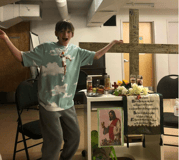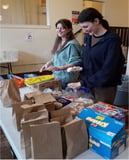The Indigenous Relations committee seeks to promote healing, education and the steps needed for true reconciliation among Indigenous and non-Indigenous peoples.
Resources
Online Courses (free)
Indigenous Canada (University of Alberta via Coursera)
Aboriginal Worldviews and Education (University of Toronto via Coursera)
Reconciliation through Indigenous Education (University of British Columbia via EdX)
Indigenous People’s Rights (Columbia University via EdX)
Indigenous Awareness - BCIT : This course promotes an increased understanding of Indigenous people and their place and space in Canada, past and present. Words like Reconciliation and Indigenization are becoming common place and are often followed by questions such as, “What do these words mean? Why do we have to do this? How come I didn’t know about Residential Schools?”. The course will provide you with foundational knowledge of Indigenous people in the hopes that as the true history and contemporary reality of Indigenous people is more broadly known, Reconciliation can begin.
Assembly of First Nations: The AFN Toolkit consists of 22 learning modules that have been designed to enhance the understanding of important First Nations topics to ensure both students and teachers are learning in and out of the classroom.
Invitation to Learn: 4 Seasons of Reconciliation: RBC is honoured to partner with First Nations University of Canada and Reconciliation Education to welcome and invite you to learn from the various Indigenous contributors involved in the creation of 4 Seasons of Reconciliation. This self-paced online program offers 10 modules on truth and reconciliation, which is available to all Canadians. Upon completion of the online course, you will be awarded a “Certificate of Completion” issued by First Nations University of Canada. These resources are the result of many years of work and much careful thought – ayâkwâmisiwin (in Cree). RBC extends its gratitude to the Kêhtê-ayak Elders (Elder Council) and to all the contributors.
Home on Native Land: This self-guided course involves:
- 10 video conversations with prominent Indigenous thinkers, scholars, and legal experts with host Ryan McMahon
- 10 lessons laying out the fundamentals of Treaty rights, the Indian Act, Constitutional rights, and environmental rights & Indigenous stewardship – with illustrations
- Prompts for self-reflection and ways to initiate dialogue – at work, at school, or around the dinner table
Video Resources
The St. Peter’s Indigenous Relations committee has produced a number of interviews: Listening to Indigenous Voices
Other videos:
The Blanket Exercise - Canadian History learned Experientially from the Indigenous Perspective
"The Blanket Exercise" - Indigenous Perspectives
Websites
New Westminster Archives offers a series of self-guided tours, several of which reflect on the history of Indigenous people in New Westminster
Sapperton Landing Park: learn about this site, which is important for the Stó:lô
Books
First Nations 101, by Lynda Gray
21 Things you may not know about the Indian Act, by Bob Joseph
Listening to Indigenous Voices, by Jesuit Forum for Social Faith and Justice
Five Little Indians, by Michelle Good
The New Westminster Public Library maintains a lists of book recommendations


